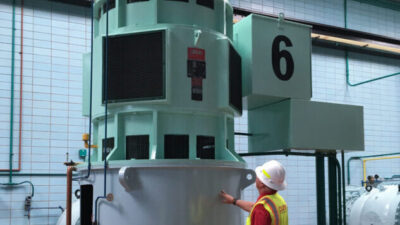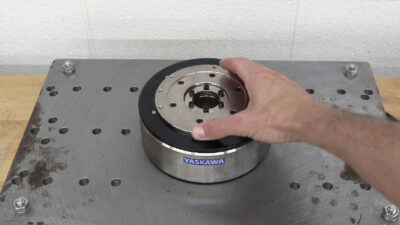The US Department of Energy (DOE) has issued rulemaking on test procedures for small electric motors for more than a decade.

The present “final rule,” effective February 3, 2021, is the culmination of those efforts. The final rule will be mandatory for product testing beginning July 6, 2021. If you want to view the complete detail of the final rule that was published in the Federal Register on January 4, 2021, it can be found at go.easa.com/1421. For further reading, another DOE site with information about the final rule is go.easa.com/eere.
A question you may ask is how the rule defines a small motor. The Energy Policy and Conservation Act (EPCA) defines “small electric motor” as “a NEMA general purpose alternating current single-speed induction motor, built in a two-digit frame number series in accordance with NEMA Standards Publication MG 1–1987.” In another rule, DOE determined that CSIR (capacitor-start, induction run [often termed “capacitor-start”]), CSCR (capacitor-start, capacitor-run) and certain polyphase motors are the only motor categories that satisfy the relevant criteria set by EPCA to be regulated as small electric motors.
In the final rule, DOE further harmonized its test procedures with industry practice and harmonized certain test conditions with current industry standards to improve the comparability of test results for small electric motors. None of these changes affected the measured average full-load efficiency of small electric motors or the measured nominal full-load efficiency of electric motors when compared to current test procedures. These changes are summarized in Table 1.
About the author
Thomas H. Bishop, P.E. is a senior technical support specialist at EASA, Inc., a CFE Media content partner. St. Louis, MO; 314-993-2220; www.easa.com. EASA is an international trade association of more than 1,800 firms in about 70 countries that sell and service electromechanical apparatus.




